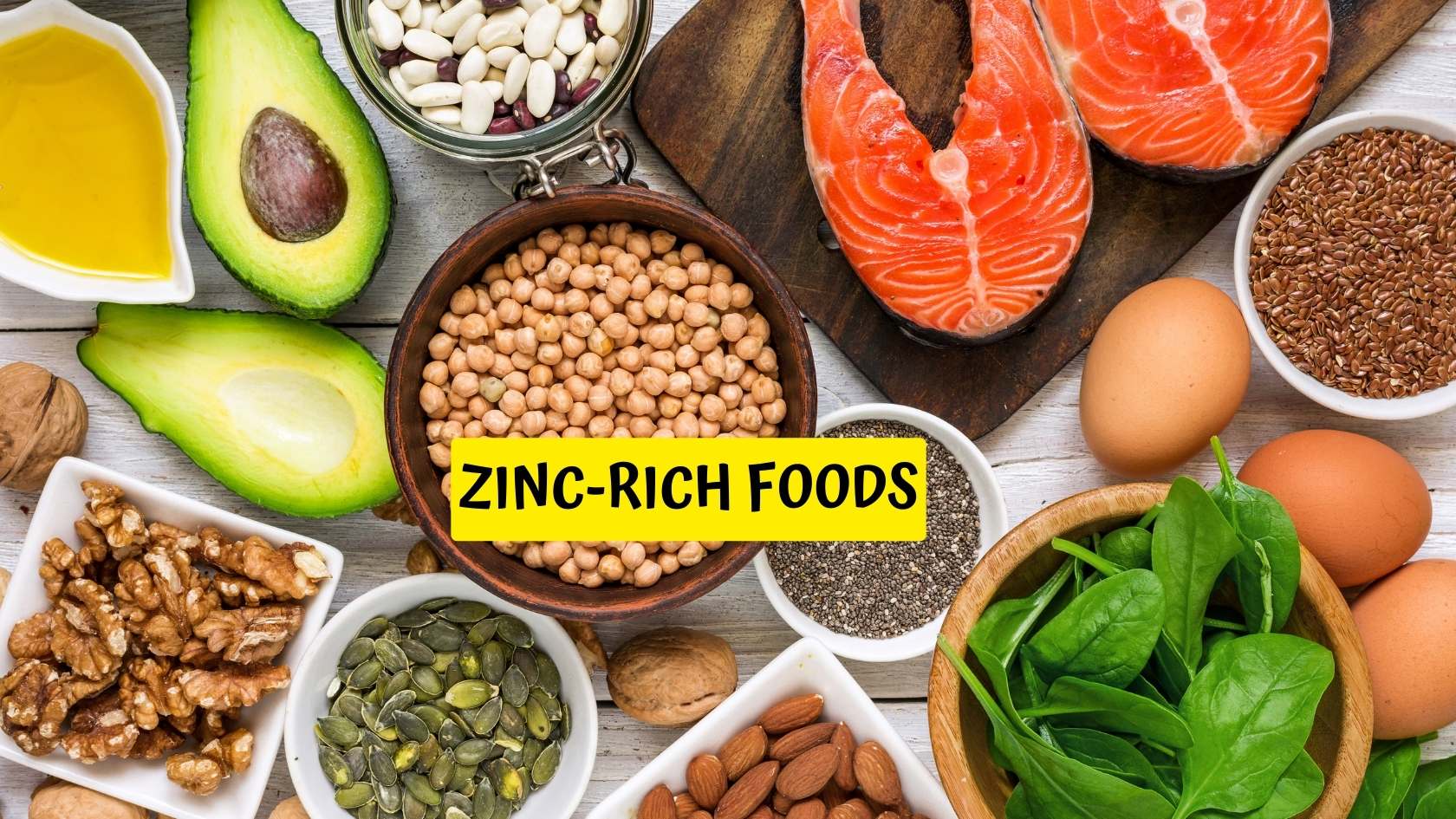Prolactin is a hormone produced by the pituitary gland, a small gland located at the base of the brain. It plays a crucial role in various physiological processes, particularly in women during pregnancy and breastfeeding. However, both men and women can experience imbalances in prolactin levels, leading to a condition called hyperprolactinemia. Elevated prolactin levels can have various causes and can result in undesirable symptoms. Therefore, understanding how to reduce prolactin levels becomes important in managing related conditions and restoring hormonal balance. In this article, we will explore the significance of prolactin levels, the potential causes of elevated prolactin, and How to reduce prolactin level naturally food.
We will also delve into various strategies and interventions that can help in reducing prolactin levels naturally or with medical assistance. It is important to note that while some cases of hyperprolactinemia may require medical intervention, there are also lifestyle modifications and alternative approaches that can be beneficial in managing and lowering prolactin levels.
Whether you are experiencing symptoms related to elevated prolactin or simply interested in understanding more about this hormone and its regulation, this article aims to provide you with valuable insights and practical information. By gaining a better understanding of prolactin levels and the available strategies to reduce them, you can take an active role in promoting hormonal balance and overall well-being.
What is Prolactin Level?
The level of prolactin in the blood can vary depending on various factors, including age, sex, and the individual’s hormonal status. Normal prolactin levels differ between men and non-pregnant women. In non-pregnant women, the normal range is typically less than 25 ng/mL (nanograms per milliliter), although this can vary slightly between different laboratories. In men, normal levels are generally lower, usually less than 20 ng/mL. So, do you know how to reduce prolactin level naturally food? Let’s discuss about this.
How to reduce prolactin level naturally food
While there isn’t a specific food that can directly reduce prolactin levels, certain dietary changes and lifestyle habits may help regulate prolactin production in the body. Here are some natural approaches that may help:
- Manage stress: Chronic stress can lead to increased prolactin levels. Engage in stress-reducing activities like meditation, yoga, deep breathing exercises, or hobbies that help you relax.

- Eat a balanced diet: Consume a well-rounded diet that includes whole foods, fresh fruits, vegetables, lean proteins, and healthy fats. Avoid processed foods and excessive sugar intake.

- Zinc-rich foods: Zinc plays a role in regulating prolactin levels. Include foods like oysters, beef, poultry, pumpkin seeds, and spinach, which are good sources of zinc.

- Vitamin B6: Adequate intake of vitamin B6 may support hormonal balance. Foods rich in vitamin B6 include bananas, avocados, nuts, fish, and poultry.
- Dopamine-boosting foods: Prolactin is inversely related to dopamine levels. Include foods that support dopamine production, such as almonds, avocados, bananas, dairy products, and lean meats.
- Avoid estrogenic foods: Some foods contain compounds that can mimic estrogen in the body, potentially leading to increased prolactin. These include soy products, flaxseeds, licorice, and certain herbs like sage and red clover. Limit their consumption.
- Limit alcohol and caffeine: Excessive alcohol intake and caffeine consumption may disrupt hormone levels, including prolactin. Moderation is key.
- Maintain a healthy weight: Obesity is associated with higher prolactin levels. Adopting a healthy lifestyle that includes regular exercise and a balanced diet can help maintain a healthy weight.
How to reduce prolactin level by yoga
Yoga is a holistic practice that combines physical postures, breathing exercises, meditation, and mindfulness. While it may not directly target prolactin levels, yoga can help regulate hormones and reduce stress, which indirectly affects prolactin production. By incorporating specific yoga poses and practices into your routine, you can support hormonal balance and potentially contribute to the reduction of prolactin levels. Here are some yoga practices that may be beneficial:
- Stress Reduction: Chronic stress can contribute to increased prolactin levels. Yoga helps reduce stress by activating the relaxation response in the body. Practices like gentle yoga sequences, restorative poses, and guided relaxation techniques, such as Yoga Nidra, can induce a state of deep relaxation and help alleviate stress.
- Inverted Poses: Certain inverted yoga poses, such as shoulder stand (Sarvangasana) and headstand (Sirsasana), may stimulate the hypothalamus and pituitary gland, which play a role in regulating hormone production. These poses are believed to support overall hormonal balance and potentially influence prolactin levels.
- Balancing Poses: Yoga poses that require focus and balance, such as Tree pose (Vrksasana) and Warrior III (Virabhadrasana III), help strengthen the mind-body connection and promote a sense of stability. By reducing anxiety and improving emotional well-being, these poses indirectly support hormonal balance.
- Restorative Yoga: Restorative yoga poses, like Supported Child’s Pose (Balasana) and Legs-Up-The-Wall pose (Viparita Karani), help activate the parasympathetic nervous system, which is responsible for relaxation and restoration. These poses promote deep relaxation, reduce stress, and support overall hormone regulation.
- Pranayama (Breathing Exercises): Pranayama techniques, such as alternate nostril breathing (Nadi Shodhana) and deep belly breathing (Diaphragmatic Breathing), can help calm the mind, reduce stress, and balance the endocrine system. Regular practice of pranayama may contribute to hormonal regulation, including prolactin levels.
How to lower prolactin levels to get pregnant
Lowering prolactin levels can be beneficial for women who are trying to conceive but have elevated prolactin levels. Here are some approaches that may help reduce prolactin levels and increase the chances of getting pregnant:

- Consult with a healthcare professional: If you suspect you have high prolactin levels and are having difficulty getting pregnant, it is important to consult with a healthcare professional, such as an endocrinologist or reproductive specialist. They can assess your specific situation, perform diagnostic tests, and provide appropriate guidance and treatment options.
- Medication: In some cases, medication may be prescribed to lower prolactin levels. Medications called dopamine agonists, such as bromocriptine or cabergoline, are commonly used to treat hyperprolactinemia. These medications work by stimulating dopamine receptors in the brain, which helps inhibit prolactin production.
- Manage stress: High levels of stress can contribute to elevated prolactin levels. Practicing stress-reducing techniques such as meditation, deep breathing exercises, yoga, or engaging in hobbies and activities you enjoy can help lower stress and potentially impact prolactin levels.
- Maintain a healthy weight: Being overweight or obese can lead to hormonal imbalances, including elevated prolactin levels. By adopting a healthy diet and engaging in regular physical activity, you can work towards achieving and maintaining a healthy weight, which may help normalize hormone levels, including prolactin.
- Evaluate medication use: Some medications, such as certain antidepressants or antipsychotics, can elevate prolactin levels. If you are taking any medications that may affect prolactin levels, discuss alternative options with your healthcare provider, especially if you are trying to conceive.
- Address underlying medical conditions: Certain medical conditions, such as hypothyroidism or polycystic ovary syndrome (PCOS), can contribute to elevated prolactin levels and infertility. Treating and managing these underlying conditions can help regulate hormone levels and improve fertility.
- Follow a healthy lifestyle: Adopting a healthy lifestyle overall can positively impact hormone levels and fertility. This includes consuming a balanced diet rich in nutrients, avoiding excessive alcohol consumption, quitting smoking, and getting regular exercise.
Read More :- Bajra: Its excellent Benefits, Uses, and Nutrition
Can stress cause high prolactin levels?
Yes, stress can indeed contribute to elevated prolactin levels. Prolactin is regulated by a complex interaction between the hypothalamus, the pituitary gland, and various hormones in the body. One of the factors that influence prolactin release is the balance between dopamine and prolactin-inhibiting hormone (PIH), also known as dopamine-inhibiting factor (DIF). Dopamine inhibits the release of prolactin, while PIH/DIF stimulates it.
Stress, particularly chronic or long-term stress, can disrupt this delicate hormonal balance. Stress activates the hypothalamic-pituitary-adrenal (HPA) axis, resulting in the release of stress hormones, including cortisol. Cortisol, in turn, can suppress dopamine production, thereby reducing the inhibitory effect on prolactin release. As a result, prolactin levels may rise.
Symptoms of high Prolactin in Females
High prolactin levels in females, a condition known as hyperprolactinemia, can cause a variety of symptoms. The specific symptoms can vary depending on the individual, the underlying cause of the elevated prolactin, and the duration and severity of the condition. Here are some common symptoms associated with high prolactin levels in females:
- Irregular or absent menstrual periods: Hyperprolactinemia can disrupt the normal menstrual cycle, leading to irregular or infrequent periods. In some cases, it can cause complete absence of menstruation (amenorrhea).
- Galactorrhea: Galactorrhea refers to the spontaneous production of breast milk not related to breastfeeding. Women with high prolactin levels may experience milky or clear nipple discharge from one or both breasts.
- Infertility: Elevated prolactin levels can interfere with ovulation and menstrual cycle regularity, making it more challenging for women to conceive. It can contribute to infertility or difficulties in becoming pregnant.
- Decreased libido and sexual dysfunction: High prolactin levels may lead to a decrease in sexual desire (libido) and can contribute to sexual dysfunction, including vaginal dryness and difficulty achieving orgasm.
- Headaches: Some women with hyperprolactinemia may experience frequent or persistent headaches, which can range from mild to severe.
- Vision problems: In rare cases, high prolactin levels can cause visual disturbances or changes in vision. This can occur when prolactinomas, benign tumors of the pituitary gland that produce prolactin, grow large and exert pressure on the optic nerves.
- Acne and hirsutism: Elevated prolactin levels can sometimes be associated with acne breakouts and increased hair growth in unwanted areas, a condition known as hirsutism.
It is important to note that these symptoms are not exclusive to hyperprolactinemia and can be caused by other underlying medical conditions. If you are experiencing any of these symptoms or have concerns about your prolactin levels, it is recommended to consult with a healthcare professional for an accurate diagnosis and appropriate treatment.
- Read More : Yoga Aasan control mood swings during menopause
-
Read More : Benefits of Okra Water to Ladies Sexually
